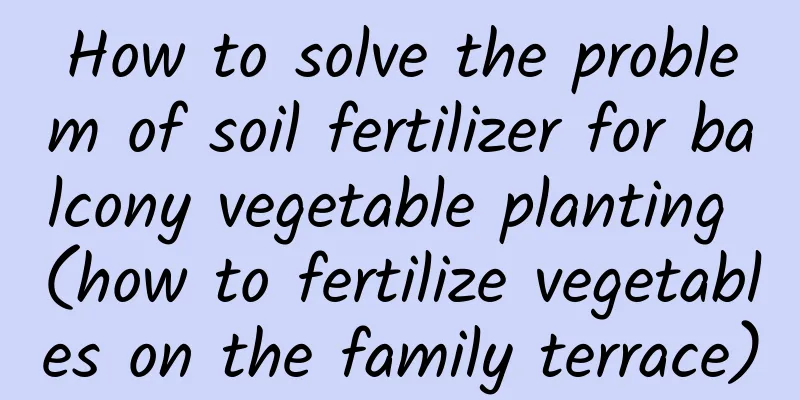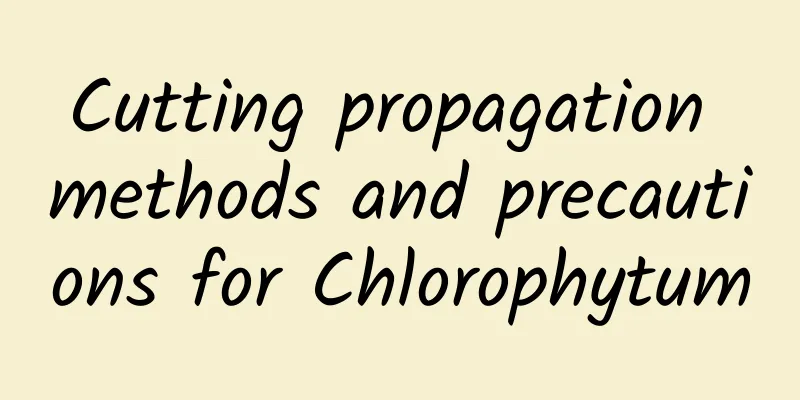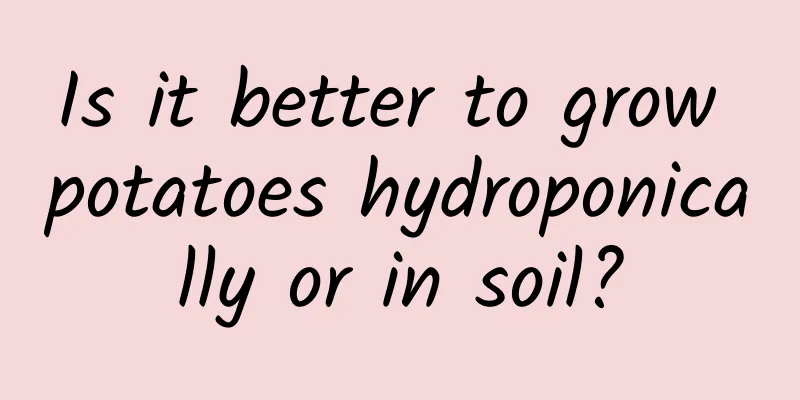How to solve the problem of soil fertilizer for balcony vegetable planting (how to fertilize vegetables on the family terrace)

|
Chives grown on the balcony (photo) Because the leeks and onions planted by my colleague, except for the first batch, feel like there is a lack of continuity after they are harvested, and the seedlings are too weak. The peppers he planted often have flowers falling off and do not produce peppers. The main problems are insufficient fertilizer and light. Today I will share with you the importance of soil and fertilizer for growing vegetables, how to choose, how to solve the problem of reduced fertilizer efficiency in balcony vegetable growing soil, and some other issues that need to be paid attention to when growing vegetables. ① Vegetable potsBefore talking about soil and fertilizer, let me first talk about an important prerequisite for growing vegetables on the balcony: the size of the pot caused by the thickness of the soil. Most vegetables need a relatively deep root system, and the deeper the soil thickness, the better the vegetables will grow . Generally, ordinary leafy greens and peppers need a pot at least 20 cm deep, corn needs more than 30 cm, pumpkins need 35 cm, tomatoes need more than 25 cm, and melons need 25 cm. The width of the pot is also very important, so that the root system can be more, the smaller the pot, the worse the fruit will grow. I use a 20-liter oil drum, a large foam box, or a deeper foam box. They are very effective in growing corn and sunflowers. The seedlings in 3 pots are weak and the fruits are small. ②Soil1. Choose the soil type based on the balcony load-bearing capacity Most of the buildings nowadays are apartments, and it is not safe for the balcony to bear too much weight. I suggest choosing the following soil ratio: peat soil: perlite: vermiculite: pine needle soil/garden soil = 4:1:1:4 . Among them, the proportion of garden soil can be reduced, but it cannot be completely eliminated, otherwise the soil will be too loose and the root system will not be stable enough. 2. Considering the economic aspect If the house is very solid, such as my terrace, my planting soil ratio is as follows: Peat soil: perlite: vermiculite: pine needle soil = 1:1:1:7. I try to use pine needle soil and garden soil as much as possible. The cost is too high to use peat soil to grow vegetables. ③ Fertilizer1. Organic fertilizer Vegetables are grown for eating, so the first choice is organic fertilizer. Add three or four centimeters of soil to the bottom of the flowerpot, and then add well-rotted organic fertilizer. Anything you have will do. Then cover it with soil and wait for sowing or planting vegetable seedlings. The types of organic fertilizers available to families include: decomposed chicken manure, sheep manure, oil cake, etc. I usually apply enough base fertilizer, and generally no topdressing is needed in the first two months of growth. After the vegetables have grown for two months, they need to be fertilized. Dig a hole on the side of the flowerpot, put organic fertilizer in and cover it with soil. Do this at least once a month, and keep fertilizing as long as you plant it. 2. Fertilizer Generally, 70-80% of vegetable fertilizers are organic fertilizers, which I think is enough. Of course, if you have time to take care of them, it would be better to use only organic fertilizers. If the vegetables and fruits are occasionally not cared for sufficiently and lack fertilizer and need to be quickly replenished, it is necessary to spray the leaves with chemical fertilizers and the growth of the vegetables will catch up quickly. ④ VentilationVentilation is a problem for growing vegetables on the balcony. If ventilation is poor, it is easy for insects, powdery mildew and other pathogens to appear. If these things appear, you have to spray pesticides. If you don't spray pesticides, you have to pull them out and replant them, or even change the soil. ⑤ LightFor example, when growing tomatoes, the fruit is green when it grows to its largest size. It takes nearly a month for the fruit to turn from green to white, and another month for the fruit to turn from white to red. If there is a lack of light, the fruit will turn red even slower. Leafy vegetables and leeks will become thin and weak if they lack light. Therefore, try to plant vegetables and fruits on a balcony with plenty of sunlight . If there is insufficient sunlight, only three or four hours, plant leafy vegetables. If there is only one or two hours, plant vegetables such as wood ear vegetables. |
<<: How to get a high survival rate of Begonia cuttings (Begonia cutting time and rooting method)
>>: When is the best time to fertilize roses in a year?
Recommend
How to prune jade tree
When to prune jade trees Jade plants are usually ...
How to plant Atractylodes lancea
Atractylodes lancea , a perennial herb belonging ...
When is the right time to prune?
Nuclear pruning Walnut trees can be pruned in aut...
How to prune Jasper flowers
How to prune the branches of Jasper Flower It is ...
What flowers are suitable for growing in Dongying? What are the city flowers and trees?
1. Climate characteristics of Dongying Dongying h...
Can Anthurium be watered with beer?
1. Can be poured It can be watered with beer, whi...
How to grow the hydroponic fortune tree to make it more vigorous
The money tree is relatively easy to keep and has...
How to grow flowers more vigorously?
For every friend who likes to grow flowers, they ...
What is the flower language of cornflower?
Flower Language Flower Language The flower langua...
How to prune hibiscus
How to prune hibiscus branches It is best to prun...
Fig Origin, Fig Price
1. Origin Its origin is on the Mediterranean coas...
Strawberry Management Measures in January
The arrival of January also ushers in the coldest...
Should I use a large or small pot for azalea?
Should I use a large or small pot for azalea? Whe...
How to cultivate holly
1. Maintenance conditions The bonsai of holly is ...
Varieties of Sleeping Lotus
Main varieties Purple Sleeping Lotus This type is...









